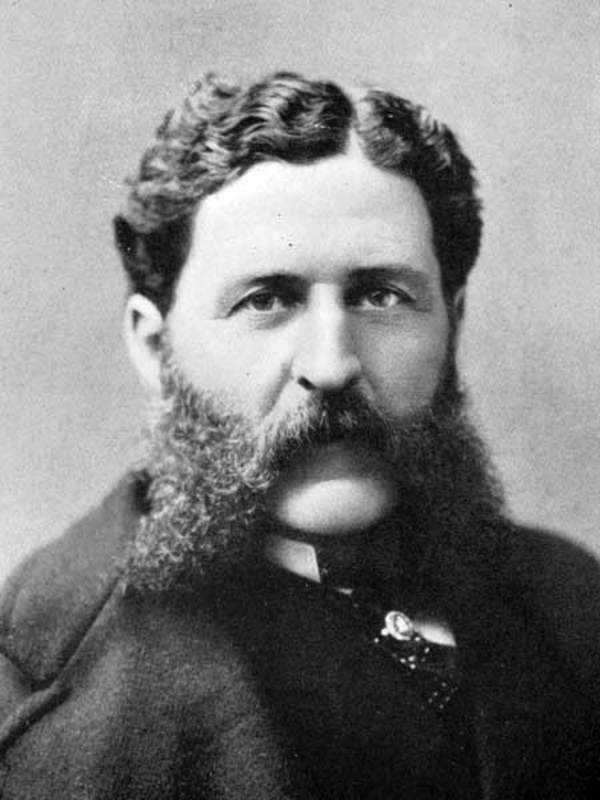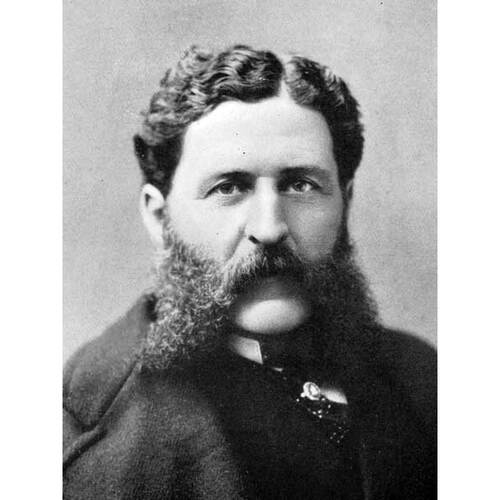
Source: Link
McMICKEN, ALEXANDER, businessman, secret service agent, politician, and magistrate; b. 27 Aug. 1837 in Queenston, Upper Canada, son of Gilbert McMicken* and Ann Theresa Duff; m. 1 Sept. 1859 Margaret Sarah Johnston in Niagara (Niagara-on-the-Lake), Upper Canada; d. 29 July 1916 in Winnipeg.
After he completed his education in local public schools and the Toronto Academy, Alexander McMicken was appointed postmaster and collector of customs at Clifton (Niagara Falls), Upper Canada, but he remained there only until 1860. That year he moved to Windsor, where he engaged in the grain trade. In 1864 his father was placed in charge of Canada’s first secret service, to counter the threat of raids from Confederate soldiers and later from Fenians; Alexander was responsible for the western division of this service. According to a newspaper account, “By his daring and skill in handling strategic positions he came to the attention of the Dominion government.”
Alexander arrived in Manitoba in 1871 soon after his father, whose ability and loyalty to the Conservative government had earned him numerous posts in the new province. At first he assisted his father in the operation of the Government Savings Bank. On 4 Jan. 1872 he opened his own private bank, in a log house adjoining the frame building that contained his father’s office and a smithy.
McMicken’s Bank had the distinction of issuing what was probably the first cheque written and cashed in the North-West Territories. Business thrived, making larger quarters necessary, and on 24 Nov. 1873 McMicken relocated to a new brick-veneer building – the first such structure in the west – which served as both his residence and his place of business. In 1875, however, he sold out to the Ontario Bank and afterwards applied himself to other interests.
He had played an active role in local politics, almost from the moment of his arrival in the settlement, vigorously promoting the incorporation of the city of Winnipeg; it was achieved in 1873. In 1875 and again in 1881 he was elected to the Winnipeg City Council and in December 1882 he was elected mayor for the following year.
McMicken’s tenure as mayor was marked by sharp controversy. Winnipeg’s prospects had been dazzling in 1881, following the decision of the Canadian Pacific Railway to build its main line through the city and to locate its western shops, freight sheds, and offices there. The railway’s decision assured that Winnipeg would be the gateway to the Canadian prairie and that it would become the dominant metropolis. The economic expansion envisaged for the city resulted in a demand for commercial, industrial, and residential sites which set off a speculative frenzy in 1881. Land prices soared. The real estate boom ended abruptly in April 1882, when a flooding Red River covered much of the land on which the urban expansion was supposed to occur. Expectations were chilled and real estate values began to collapse. Confident, however, that the set-back was only temporary, in December the city council overwhelmingly approved a by-law to borrow $1,250,000 for major civic improvements, such as police and fire stations, a new bridge, and a city hall of the size and grandeur that would be warranted in an important urban centre [see Charles Arnold Barber]. McMicken, as mayor elect, journeyed to New York to sell the city’s bond issue. He obtained what were declared to be very favourable terms, far better than those realized for a previous issue.
Work on the new civic structures, notably the city hall, progressed to such a degree that the proceeds of the bond issue were overspent, moving city council to propose the borrowing of another $500,000 to cover expenditures already made. By this time, however, it had become painfully evident that the inflated real estate values of the boom would not soon return. The interest charges entailed in the city’s heavy debt would constitute oppressive burdens on a much reduced assessment base. Angry property owners formed an association in 1883 to oppose extravagance and its candidate, Alexander Logan*, decisively defeated McMicken in the mayoralty election of late 1883.
After selling his bank McMicken had been involved in a variety of business ventures. He had engaged in land speculation during the boom of 1881–82 – with mixed success, he ruefully acknowledged years later. “Like a great many others I survived the boom after sharing its disasters.” With a partner he built a footbridge over the Assiniboine, partly for his own convenience, since his home was across the river from the established community; the partners sold the structure to the city in 1882. He was involved in the laying out of two tracks for horse-racing, one just west of the city and the other about 12 miles to the north. In the 15 years following his defeat in the election for mayor he was listed in local directories as an insurance agent, a broker, and a agent for a water filter company. In 1900 he was appointed provincial police magistrate, in which office he established a reputation for releasing young offenders on their honour, so that they would be spared a prison record. As a magistrate, he was apparently quite irascible; according to a report, he once descended from the bench and engaged a lawyer appearing before him in a fist-fight.
His interests and entrepreneurial drive extended beyond the arenas of business and politics: he was a member of the first congregation of Augustine Presbyterian Church, established the Independent Order of Odd Fellows in the province, was a member of the Knights of Pythias and the Orange lodge, was an excellent marksman, arranged for the first balloon to be brought to Winnipeg, helped to set up Winnipeg’s first cricket club, and was in 1879 a founding member of the Historical and Scientific Society of Manitoba. Because of failing health and advancing years McMicken retired as magistrate in 1913; his death occurred three years later.
AO, RG 80-27-2, 33: 16. Manitoba Free Press, 31 July 1916, 18 Nov. 1927. Winnipeg Tribune, 17 Aug. 1908, 27 Aug. 1910, 6 April 1965. A. F. J. Artibise, Winnipeg: a social history of urban growth, 1874–1914 (Montreal and London, 1975). R. [C.] Bellan, Winnipeg first century: an economic history (Winnipeg, 1978). George Bryce, A history of Manitoba; its resources and people (Toronto and Montreal, 1906). W. L. Morton, Manitoba: a history (Toronto, 1957). Pioneers of Man. (Morley et al.).
Cite This Article
Ruben C. Bellan, “McMICKEN, ALEXANDER,” in Dictionary of Canadian Biography, vol. 14, University of Toronto/Université Laval, 2003–, accessed February 24, 2026, https://www.biographi.ca/en/bio/mcmicken_alexander_14E.html.
The citation above shows the format for footnotes and endnotes according to the Chicago manual of style (16th edition). Information to be used in other citation formats:
| Permalink: | https://www.biographi.ca/en/bio/mcmicken_alexander_14E.html |
| Author of Article: | Ruben C. Bellan |
| Title of Article: | McMICKEN, ALEXANDER |
| Publication Name: | Dictionary of Canadian Biography, vol. 14 |
| Publisher: | University of Toronto/Université Laval |
| Year of publication: | 1998 |
| Year of revision: | 1998 |
| Access Date: | February 24, 2026 |




